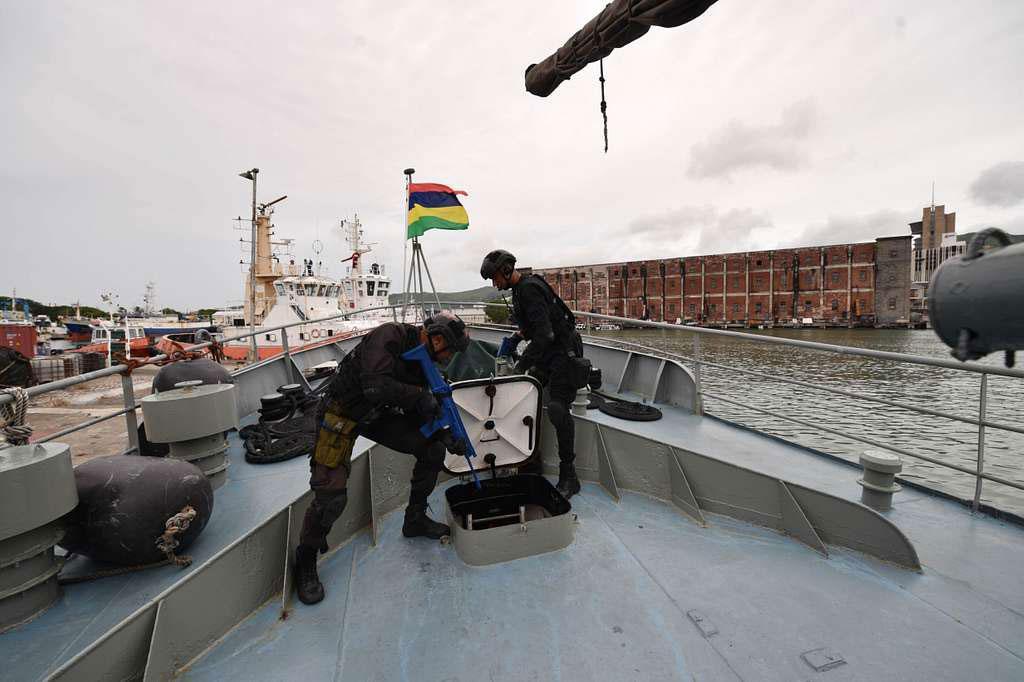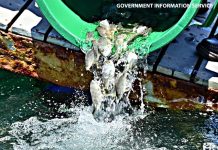By Jan Arden
Africa-Press – Mauritius. Several powerful nations vie around the Indian Ocean rim from South Africa to Australia, through such bordering states as India, Singapore, and the Middle East not to mention those that have a permanent presence through overseas territories (France) or bases (the USA in Diego Garcia, Oman and Djibouti and China in Djibouti). It is a reflection of this ocean’s strategic importance for trade in vital commodities, oil and minerals as we have previously mentioned.
It is also the Ocean where several island states and entities, each entitled to its own maritime frontiers and exclusive economic zones, co-exist and try to exert their maritime sovereignty and control over the resources that might lie in those ocean zones (Mauritius, Madagascar, Reunion/Mayotte and France, Seychelles, Maldives, Comoros and even Sri Lanka).
As we fathom whether we can learn anything from their structures to exercise sovereignty over their maritime and economic zones, we might here delve briefly on the case of France through its overseas Departments (DOMs), Mayotte and our sister island Reunion.
We will steer clear of international maritime traffic management structures and specialised bodies of the UN which play an important role, such as the International Maritime Organization (IMO), which is the global standard-setting authority for the safety, security, and environmental performance of international shipping.
Its main role is to create a regulatory framework for the shipping industry that is fair and effective, universally adopted and universally implemented.
Several maritime analysts would be far more qualified to write or speak about these and, for instance, EU structures like the European Border and Coast Guard Agency, commonly known as Frontex, as they impact us.
The latter, created in 2016 as a pan-European coast-guard union, seems more focused on safeguarding the EU’s external frontiers while allowing free movement inside Europe and need not concern us overly at this stage.
Nominally, our National Coast Guard (NCG), established in 1987, has at first sight the requisite mandate to enforce any law relating to the security of the State of Mauritius, the protection of the maritime zones and to detect, prevent, and suppress any illegal activities within our maritime zone.
It has also, over the years and successive political administrations, built up a not insignificant aero-naval force comprising patrol vessels, fast boats, marine surveillance helicopters, some equipped with night vision capacities, two Dornier-type aircraft, some 500 trained and disciplined manpower and improved technologies.
As custodian of those maritime assets, the NCG, operating as a specialised unit of the Mauritius Police Force, has discharged over 35 years as best it could its heavy and difficult responsibility to safeguard our maritime frontiers, its potential marine wealth and provide assistance to distressed seafarers.
So, if all things were going swimmingly as Police Commissioner Dip and the responsible Indian naval squadron officers cooed with pride at the NCG’s 35-year of service celebrations last July, why should we bother at all?
Might the higher spheres of power have forgotten that barely two years earlier, on July 25th 2020, in the midst of a pandemic when Mauritius was under revolving curfews, on a Saturday evening when many of our higher echelons might have been partying, the Japanese owned carrier MV Wakashio, with unknown cargo had slammed into our coral reefs right under the very able noses of our best guardians?
Might they have forgotten that thousands of youths from all walks of life volunteered for makeshift booms and rushed to the Pointe d’Esny and Mahebourg waterfronts in a desperate bid to stem the worst oil-spill in our history.
As we understand matters, the police was busy limiting access, and the derelict vessel instead of being pulled out immediately was allowed to wallow and breakup while the authorities were twiddling for twelve long days under “expert” advices?
http://www.mauritiustimes.com/mt/gearing-up-for-our-maritime-sovereignty/
For More News And Analysis About Mauritius Follow Africa-Press







